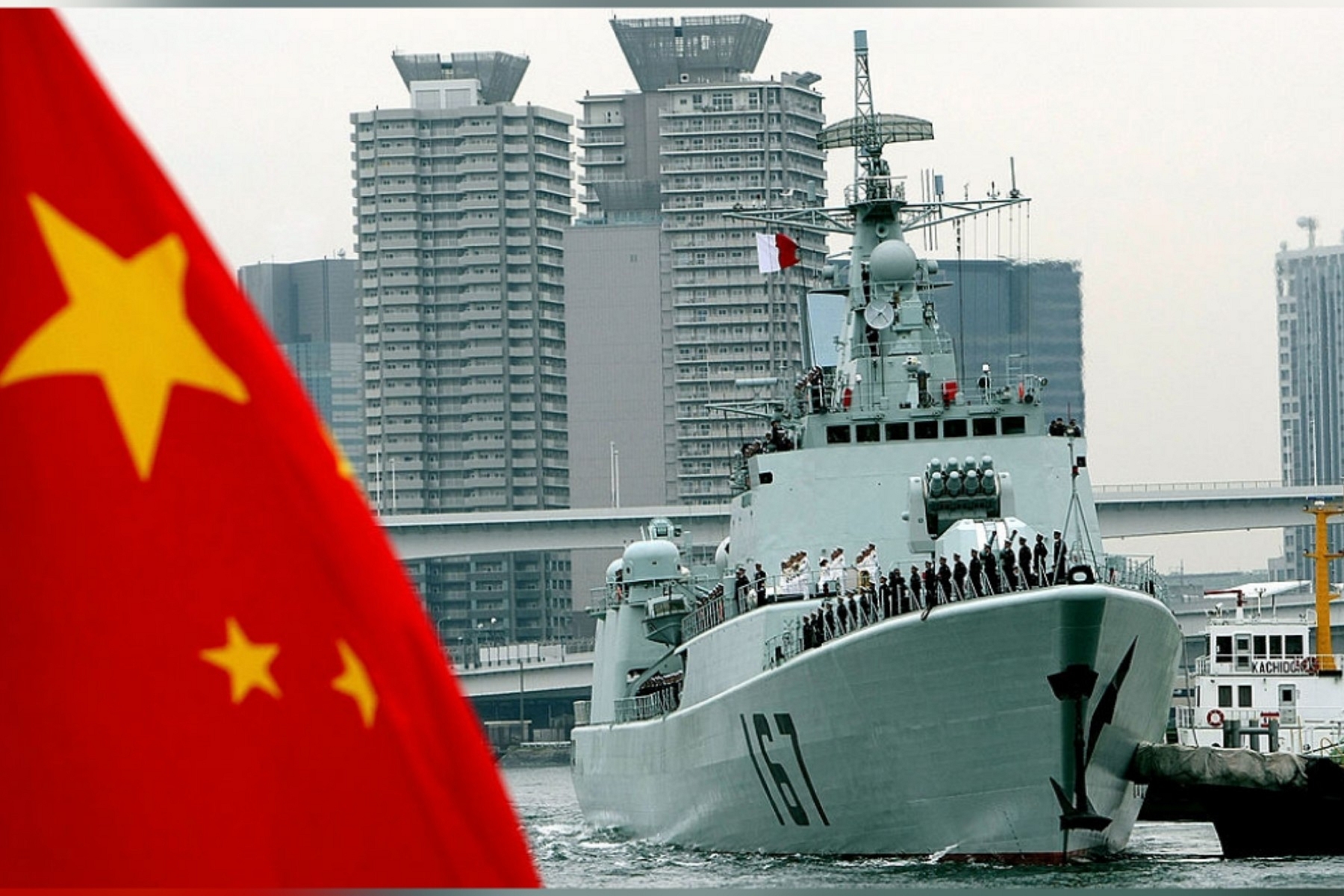Defence
Chinese Expansionist Agenda: Xi Government Renames Nineteen Features In Indian Ocean, Weeks After Renaming Eleven Locations In Arunachal Pradesh

China had previously objected to the term ‘Indian Ocean’ itself and said that the Indian Ocean is not India’s Ocean (Representative image).
China under the Xi-Jinping led Communist Party of China (CPC) government has announced names of nineteen features of Indian Ocean under the sea-bed, reported the Hindustan Times.
Earlier on 2 April, China has renamed eleven geographical locations in India's Arunachal Pradesh. This move was promptly rejected by New Delhi, causing tension between the two countries.
Interestingly, the day before, China named 19 sub-surface features in the South Indian Ocean, located approximately 2,000 km away from the Indian peninsula.
Despite Chinese media referring to this as a projection of Beijing's "soft power", many speculate that the move is related to the China Ocean Mineral Resources R&D Association's (COMRA) exploration contract, awarded for a period of 15 years by the International Seabed Authority in 2011. The exploration is set to take place in the South-West Ridge of the Indian Ocean, near Madagascar.
It is worth noting, however, that India was also awarded exploration work in the same area for precious metal polysulphide modules, but to the north of the Chinese exploration blocks.
“The renaming of sundry geographical locations in Arunachal Pradesh and in the deep Indian Ocean is reflective of the Middle Kingdom mentality of the Communist Party of China (CPC) and mirrors the British Imperial approach in the 19th century to project dominance and power," said a South Block Official.
The official added, "Even diplomats posted in China are given mandarin names while presenting their diplomatic papers”.
The Indian Ocean boasts 19 seabed features, with eight located along the south-west ridge and one positioned on the east of the ridge towards Antarctica. Of the remaining ten, six neighbour Oman and the Chinese port in Djibouti off the African horn, while four with Madagascar's coastline.
China has proposed several underwater features as part of its claim of maritime sovereignty in the South China Sea. The six features proposed by China's Navy Hydrographic Office in 2021 include Bangu Knoll, Huapengu Hill, Langzhangg Hill, Shugu Hill, Tanggu Hill, and Zhangu Hill.
In 2020, the Navy Hydrographic Office proposed Yaogu Seamoount and Yugu Hill, while COMRA proposed Houxian Seamount. Sanboa Hill was proposed by COMRA in 2019, and Tainlong Seamount was proposed by COMRA in 2018 after being approved by the Xi Jinping regime.
In 2017, COMRA proposed Daxi Hill, Duanqiao Hill, Fengyan Seamount, and Wangdayuan Seamount, all of which were approved by Beijing. These proposals have heightened tensions in the region and led to territorial disputes with neighboring countries.
Moreover, in 2015 and 2016, COMRA proposed names of several sea features including Yang’e Rudge, Liezu Seamount, Wanwu Ridge, and Yuqing Seamount. These names were inspired by surveys conducted by various Chinese research vessels, such as the Chen Jingrun Hao, which discovered the Bangu Knoll in 2019, later proposed in 2021.
Several ships including the 877 Hao, Zhu Kezhen Hao, Li Singuang Hao, and Qianglong Erhao conducted underwater surveillance as per the HT report.
The Chinese renaming of features in the Indian state of Arunachal Pradesh was, however, was met with a strong reaction from the Union Home Minster Amit Shah, who visited Kibithoo, a village close to China border in Arunachal Pradesh and said "no one can encroach even a tip of a pin's worth of our land because ITBP and Indian Army are present at our borders".
This resulted in a sharp reaction from the Chinese Foreign Ministry spokesperson, calling the Union Minister's visit as violating Beijing's territorial sovereignty and not "conducive" to peace and tranquillity along the border.
Meanwhile, China's renaming of islands in the Indian Ocean aims to project dominance in the Indo-Pacific. This is in line with China's strategy of renaming islands in the South China Sea, such as Woody Island, which was renamed as Sansha City. China's actions have been seen as an attempt to exert unlawful claims over the region.
Support Swarajya's 50 Ground Reports Project & Sponsor A Story
Every general election Swarajya does a 50 ground reports project.
Aimed only at serious readers and those who appreciate the nuances of political undercurrents, the project provides a sense of India's electoral landscape. As you know, these reports are produced after considerable investment of travel, time and effort on the ground.
This time too we've kicked off the project in style and have covered over 30 constituencies already. If you're someone who appreciates such work and have enjoyed our coverage please consider sponsoring a ground report for just Rs 2999 to Rs 19,999 - it goes a long way in helping us produce more quality reportage.
You can also back this project by becoming a subscriber for as little as Rs 999 - so do click on this links and choose a plan that suits you and back us.
Click below to contribute.
Latest